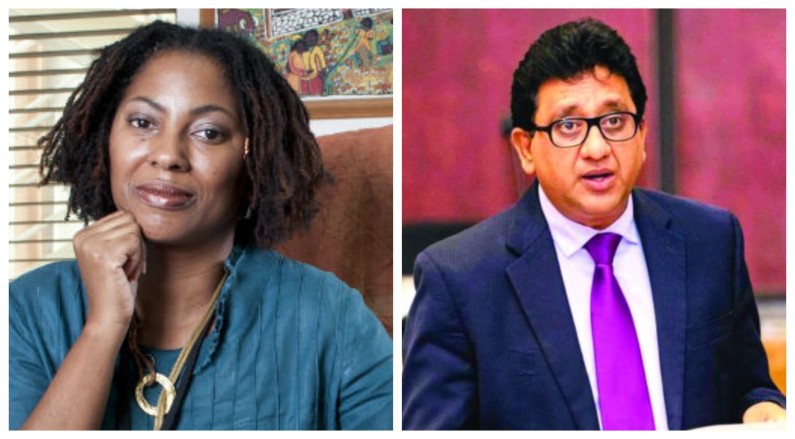
Failure on the part of Guyana’s Leaders to appointment a substantive Chancellor and Chief Justice for close to two decades, has placed the country’s judiciary in an untenable state, according to Senior Law Lecturer at the University of the West Indies (Mona Campus), Tracy Robinson.
She made the statement while underscoring the need for President Irfaan Ali and the Leader of the Opposition, Aubrey Norton to find a common ground on the matter.
“It is incumbent on the political leaders of Guyana to either decide or introduce a process, a protocol that will support their decision making,” the Lecturer said during a panel discussion hosted by UWI on Sunday under the theme ‘Constitutional Reform and the Republic: The Judicial Selection Process in the Context of the Administration of Justice and Democratic Strengthening.’
Attorney General, Anil Nandlall during his address explained that Guyana has not had a substantive Chancellor since 2005. Justice Yonette Cummings-Edwards has been the acting Chancellor since 2017. She took over from Justice Carl Singh, who had acted from 2005-2017. Justice Roxanne George has also been acting as Chief Justice since 2017.
Under the 1966 Independence Constitution, it was the Governor General who had the power to appoint of the Chancellor and the Chief Justice “on the recommendation of the Prime Minister after consultation with the Leader of the Opposition.”
The 1980 Constitution abolished the office of Governor General and transferred its appointing powers to the Executive President. However, a later amendment made as part of the Constitutional Reform process under the Herdmanston Accord, required “agreement” between the President and the Leader of the Opposition.
The Attorney General said though Article 127 was crafted with the best intention, its objective has never been met. He said, however, the country has been “saved” by the constitutional provision that allows for acting appointments.
“Acting appointments can be made in the face of a deadlock or in the face of a failure to achieve an agreement by meaningful consultation between the President and the Leader of the Opposition,” he explained.
With constitutional reform pending, the Attorney General is hopeful that amendments would be made to the constitution to allow for a consensual mechanism that actually works.
“Hopefully the political directorate will find a consensus mechanism, going forward, because clearly, what we have here has never worked,” the Attorney Generals said.
But in disagreeing with the Attorney General, the UWI Lecturer said Guyana has not been “saved” by the possibility of acting appointments, nor should it be made to wait on constitutional reform before it gets a substantive Chancellor and Chief Justice.
“I think Guyana has been in a precarious position in respect of the institutional independence with its two senior judges in acting appointments for 20-something years and I think this is perhaps the most urgent issue in respect of the judiciary in Guyana, and my hope is prior to the constitutional reform process, there is some good faith effort by the two political leaders to figure out a process through which a decision can be taken, this should not be left to the constitutional reform, Guyana is in dire, dire need of permanent chancellor and Chief Justice,” Ms Robinson reasoned.
In June, the Opposition Leader formally notified President Ali of his willingness to agree to the confirmation of Justices Cummings-Edwards and George to the top judicial posts, however, as recent as September, the President said he was not ready to make the appointments.
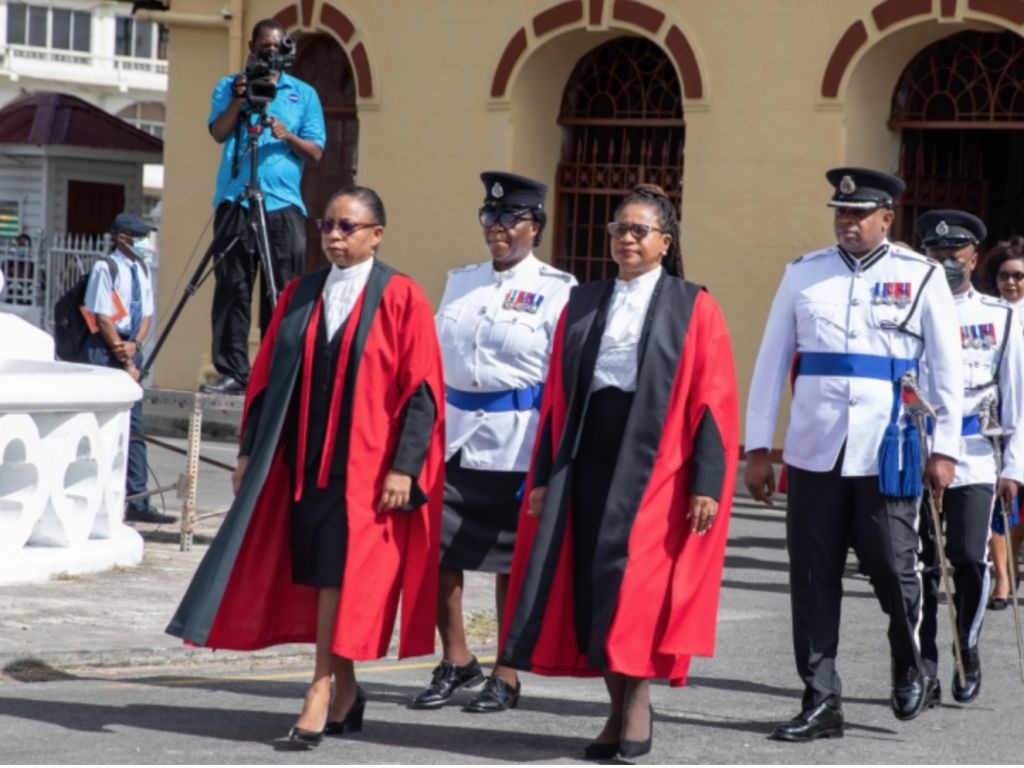
The Attorney General, however, made it clear that under the Constitution, it is the President who must initiate the process of having the top judicial posts filled.
“What is important is the President who must initiate the process of the appointment and securing the Opposition Leader’s agreement; it is not the other way around. The Opposition Leader has made certain statements, which has led me to conclude that he believes that he can initiate the process, it is a presidential power of appointment but which can only be exercised upon receipt of agreement from Leader of the Opposition,” the Attorney General explained.
In April, President of the Caribbean Court of Justice (CCJ), Justice Adrian Saunders said 2022 should not pass without a substantive Chancellor and Chief Justice being appointed.






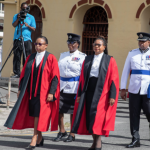
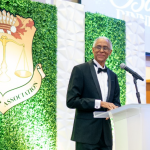
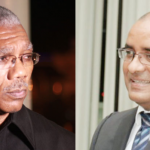


You must be logged in to post a comment Login